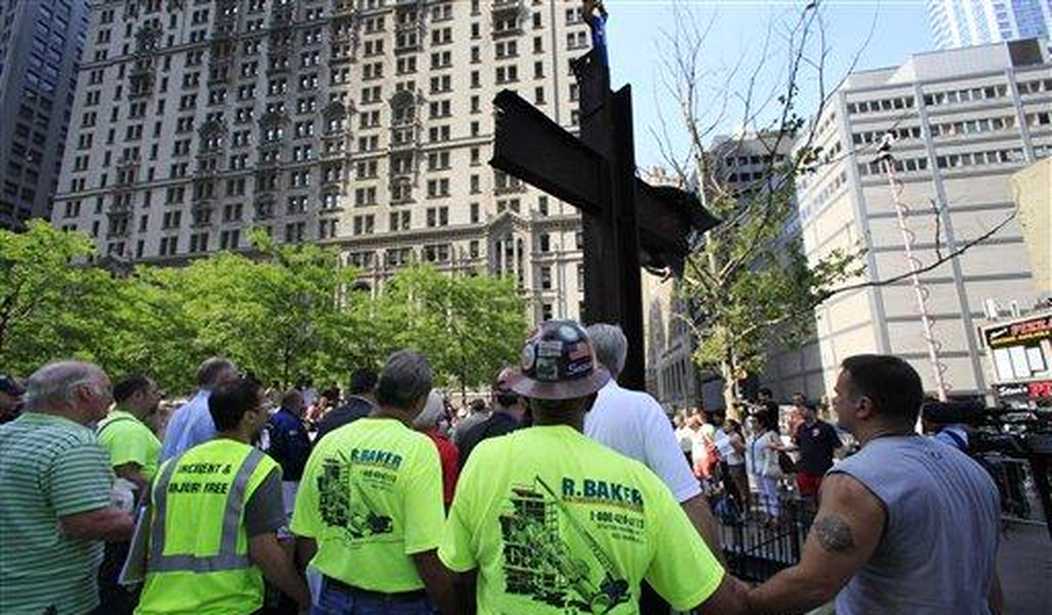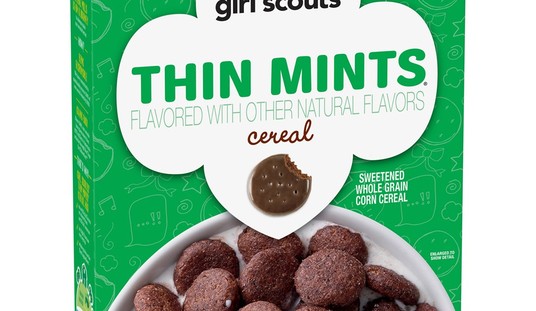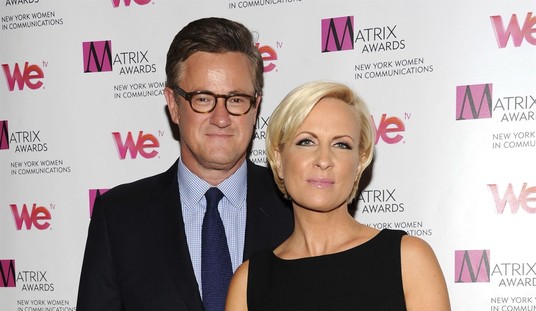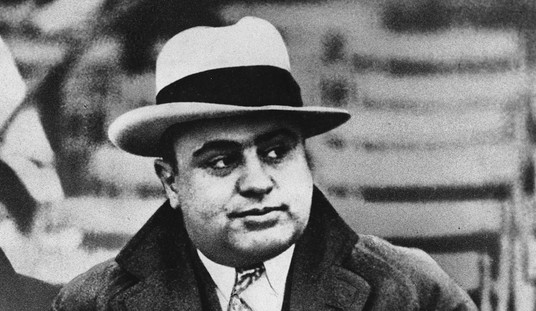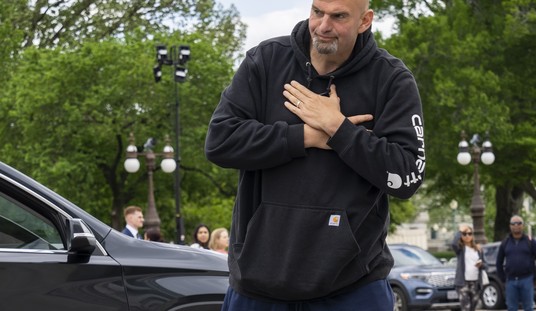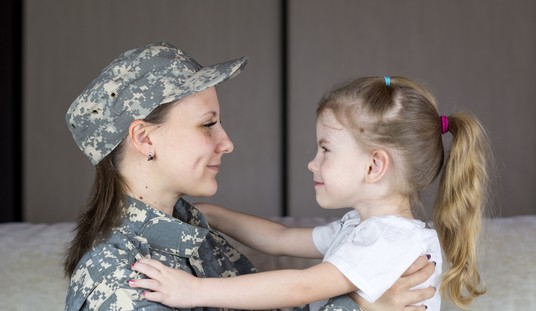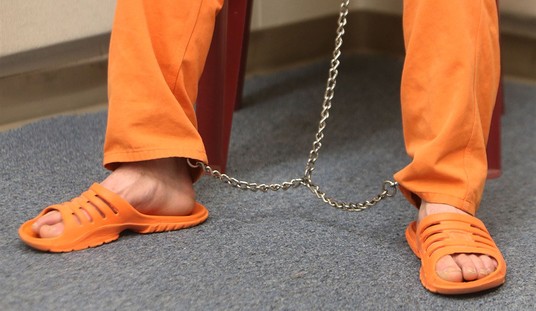I remember waking up on my own around 7 a.m. (central time) on Tuesday, September 11, 2001. I looked at my clock, and I was confused. Normally, my dad was taking us out the door to school at this time. However, no one woke me up that morning. I heard footsteps coming up the stairs and heard a knock on my door. My dad told me to get dressed and come downstairs.
I walked down the steps leading to the lower level of the house we were living in while I was in middle school. I saw my brother and sister sitting on the couch, and my dad told me to sit with them. He sat on the edge of the coffee table with a strange look on his face. As I sat down, my dad spoke very softly.
“Guys, Grandmar died… she shot herself.” And, with that, he leaned… no, it wasn’t quite a lean. It was more like falling, as if he collapsed. He cried with us. He had been holding it in all morning until we were awake.
I’d never seen my dad cry before. I don’t want to see it again. It may have been the type of breakdown he’d been holding in for a while. Grandmar – my grandmother, and his mother, it was short for “Grandmother Marva” – had been dealing with alcoholism and depression for a while at that point. This wasn’t something we were expecting by any means, but her struggle had been something we’d seen for a while. It wasn’t until I was older that I realized just how much she struggled throughout her life.
Until that morning, I was aware of what suicide and depression were, but I had never really experienced such topics until then. I was in eighth grade, and my world was drastically changed at that point.
When someone in your life chooses to take such a drastic step, you expect the overwhelming sadness that comes with it. What people don’t tell you about suicide is that you’ll also feel a wave of tremendous anger at the selfishness of the person. How dare they do this to you? Couldn’t they realize what they were inflicting on their friends and family?
How could they leave you behind like that?
Eventually, I was able to forgive. You come to realize that they felt they had no control and that was the one bit of control they felt they had left and they needed to take that opportunity. Depression is a mental illness. It doesn’t lead to rational choices. It is, at times, an unbearable emotional agony. They just want it to stop.
Later in life, I recognized the signs of depression in myself. For me, they are particularly manifest on the weekends. Between my family, my job in education, a daily radio show, and writing here, I am just too busy to stop and think about anything. But on the weekends, things slow down, and there is the chance that those negative thoughts creep in and just linger, dragging me down with them.
Thankfully, I’ve never had suicidal thoughts or any tendencies toward self-harm. I can thank my grandmother for that. I don’t ever want my family to experience that loss.
She was an amazing woman, my grandmother. You could not find anyone with more love in her heart than she had. Her family meant everything to her, and she was my favorite person in the world. To this day, I regret that my wife and my daughters will never be able to meet her in this life.
We cried for what seemed like forever that morning. Finally, wanting to escape just how terrible that morning was, I turned on the TV. That was a mistake.
I saw footage of a building smoking, and talks of an explosion. It seemed like no matter what channel I changed it to, there it was. People were coming in and out of our house, and where we should have been mourning, we were glued to the tragic scene unfolding on TV. I was heartbroken at my loss, and then it hit me that there are so many people who will feel a different kind of horror as they hear about their loss.
September 11, 2001, was a terrible day. The worst day I can remember. So much stuff went absolutely to hell that day that I wondered, albeit briefly, how hard it would be to feel happy again. There was nothing I could do for the people in New York or Washington D.C., but I felt like praying wasn’t enough.
A lot of people don't realize that September is also Mental Health Awareness Month. We are increasingly finding our fellow Americans in the midst of a mental health crisis. Our kids are getting the worst of it, but it's been across the board.
Last year in college athletics, there was a string of high-profile female athlete suicides. At Stanford, you had soccer athlete Katie Meyer. In Wisconsin, there was track star, Sarah Shulze. At James Madison University, it was softball player Lauren Burnett.
There was a piece in The Atlantic last year called "Why American Teens Are So Sad." The data was not good for Americans.
The government survey of almost 8,000 high-school students, which was conducted in the first six months of 2021, found a great deal of variation in mental health among different groups. More than one in four girls reported that they had seriously contemplated attempting suicide during the pandemic, which was twice the rate of boys. Nearly half of LGBTQ teens said they had contemplated suicide during the pandemic, compared with 14 percent of their heterosexual peers. Sadness among white teens seems to be rising faster than among other groups.
But the big picture is the same across all categories: Almost every measure of mental health is getting worse, for every teenage demographic, and it’s happening all across the country. Since 2009, sadness and hopelessness have increased for every race; for straight teens and gay teens; for teens who say they’ve never had sex and for those who say they’ve had sex with males and/or females; for students in each year of high school; and for teens in all 50 states and the District of Columbia.
Currently, we blame a lot of this on the pandemic. Our kids were at home, isolated, and being deprived of intellectual, social, and emotional development for over a year. In some places, kids got back to school earlier than others, but for many the results were the same. Isolation was worse on students than the pandemic ever was.
But the pandemic is a recent catalyst that just made an already growing problem worse. The origins of our mental health crisis may actually be in 2012, when (as The Atlantic‘s writer points out) we first saw 50 percent or more of Americans owning a smartphone and social media began its explosive rise to dominance.
Social media isn’t like rat poison, which is toxic to almost everyone. It’s more like alcohol: a mildly addictive substance that can enhance social situations but can also lead to dependency and depression among a minority of users.
This is very close to the conclusion reached by none other than Instagram. The company’s internal research from 2020 found that, while most users had a positive relationship with the app, one-third of teen girls said “Instagram made them feel worse,” even though these girls “feel unable to stop themselves” from logging on. And if you don’t believe a company owned by Facebook, believe a big new study from Cambridge University, in which researchers looked at 84,000 people of all ages and found that social media was strongly associated with worse mental health during certain sensitive life periods, including for girls ages 11 to 13.
Why would social media affect teenage mental health in this way? One explanation is that teenagers (and teenage girls in particular) are uniquely sensitive to the judgment of friends, teachers, and the digital crowd. As I’ve written, social media seems to hijack this keen peer sensitivity and drive obsessive thinking about body image and popularity. The problem isn’t just that social media fuels anxiety but also that—as we’ll see—it makes it harder for today’s young people to cope with the pressures of growing up.
Social media is telling our girls how they are supposed to look and act. Armchair psychologists are telling our kids “You don’t fit in a predefined box. You’re different. You’re not male/female. You’re special. The world is out to get you because of it.” Kids are identifying as trans, gender fluid, etc. at insanely higher rates than ever before, and a lot of it is because they spent a year at home watching TikTok instead of being able to go out and hang out with friends.
22 years ago today, a devastating act took place on American soil. Everyone has a different story about it. It’s the JFK Assassination of my generation, and it’s a day that the world changed forever. I tell the story of my grandmother on this day because, while I couldn’t do anything for anyone then, I can do something now. Everyone deals with something, and sometimes it seems like it’s too much.
That is the point where we as a country are meant to come together, like the generally good people we are, and can step in and lend them a shoulder at the bare minimum. No matter what happened that day, or any other day before or after it, we have to help each other push through it and persevere.
If you know someone who is in a dark place, lend them a hand, a shoulder, or even an ear. Help them in any way you can. Life is much too important to let it get thrown away by a senseless act of terror or within a moment of grief and self-doubt.
But it’s not just teens. As adults, we are morecale isolated from each other than ever before. We are more connected than ever when it comes to our phones, but when it comes to in-person interaction, we’d rather sit in silence at the dinner table, texting each other, than actually talking.
We have forgotten the most important lesson of society: to come together and break bread with our neighbors. The political divide has played a major role in this — we are constantly looking at those who think differently than us and pushing them away rather than coming together. Both sides do it (though, yes, there are studies that routinely show progressives are less likely to have conservative friends than vice versa), and the result is that we fracture more and more as time goes on.
Humans are instinctively social creatures. We seek social interaction. That’s how we grow, develop, and even (god forbid) come up with new ideas or change our minds. But we’ve given up in-person interaction, which requires more emotional connection and empathy, for the cold, lifeless interactions through digital screens.
Our mental health crisis is at a tipping point. We need to heal, but we’re actively rejecting healing in favor of more division.

